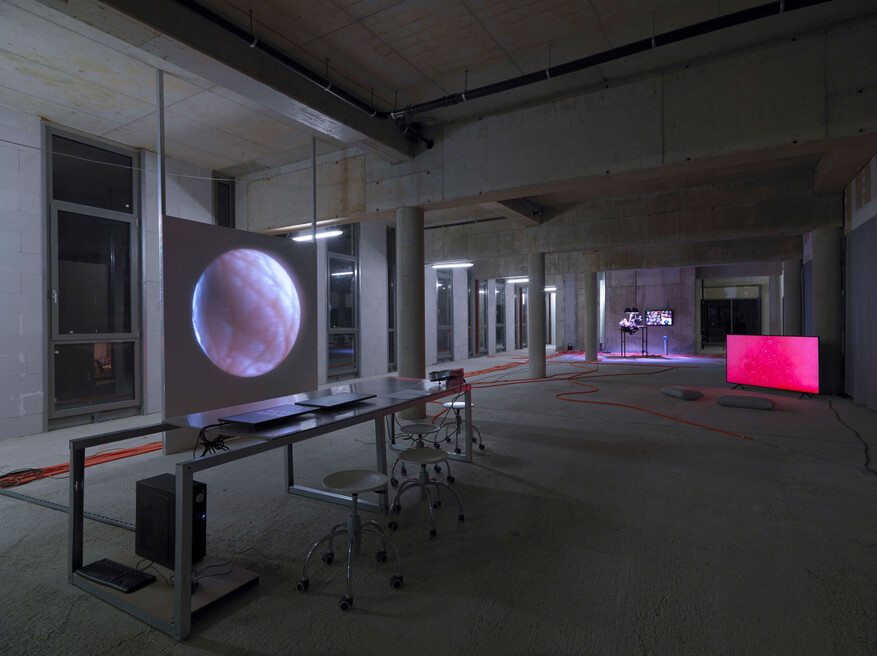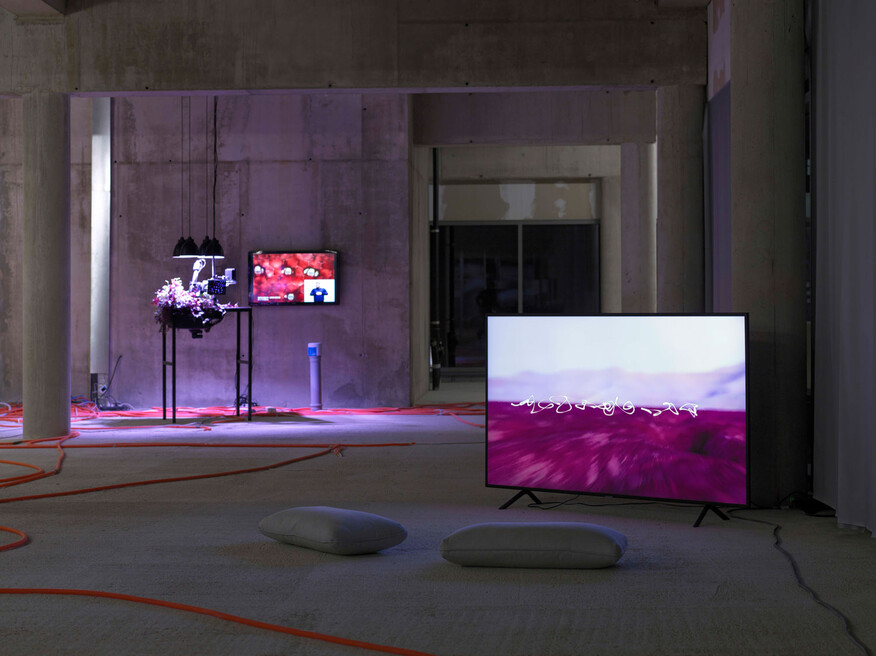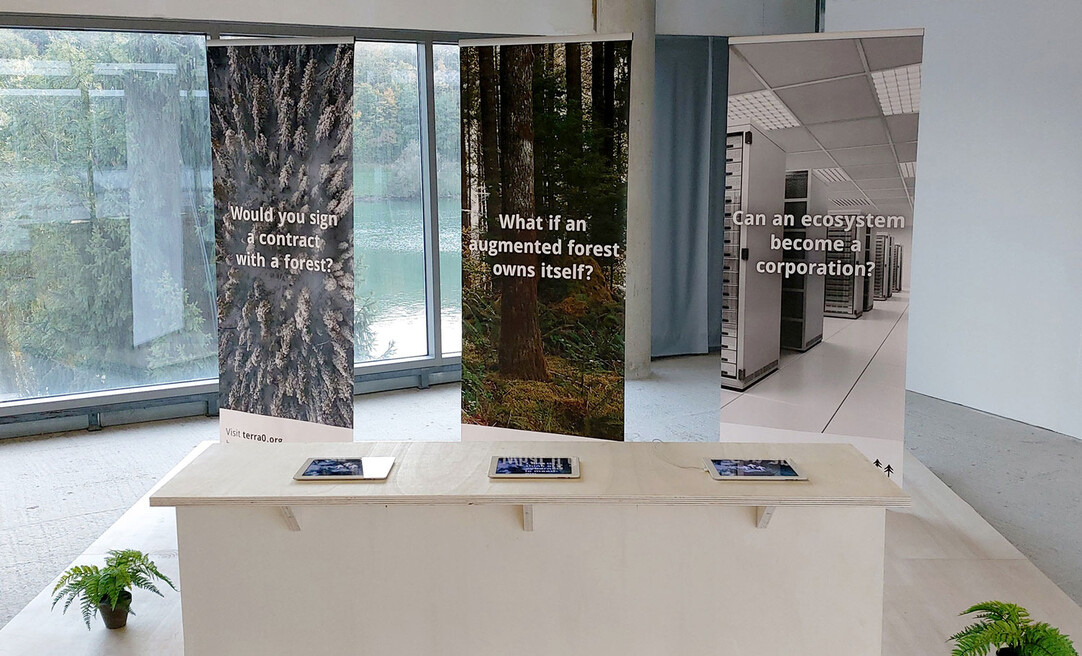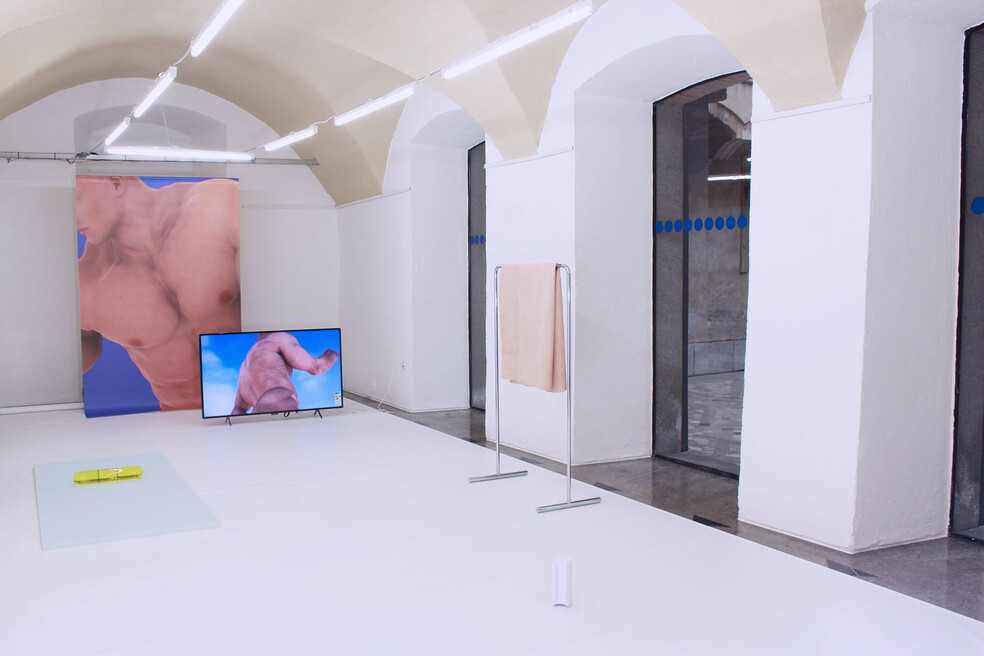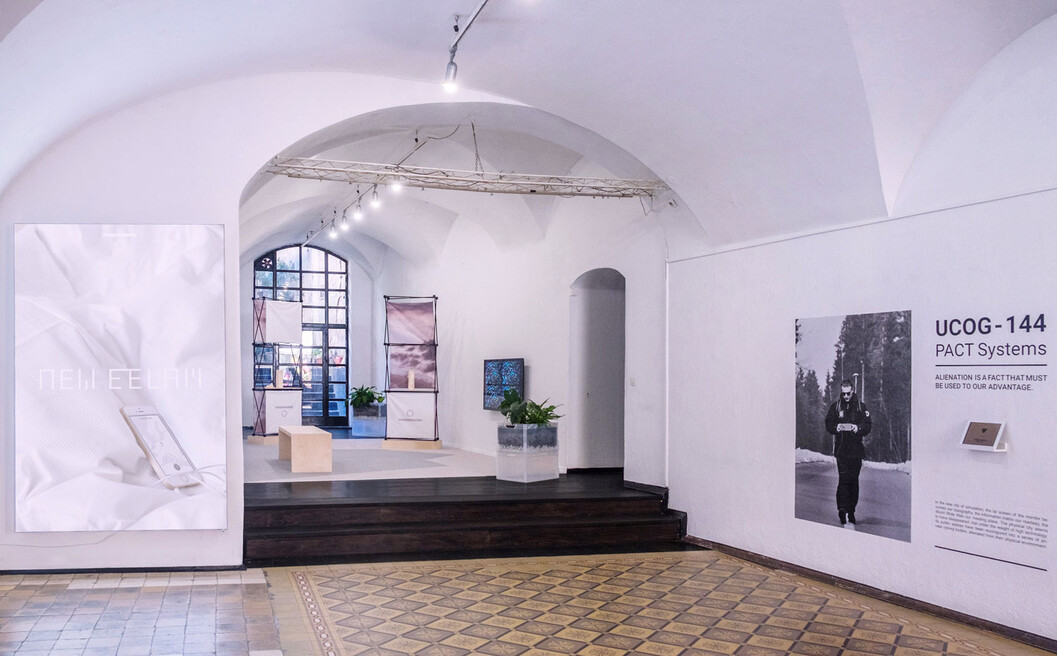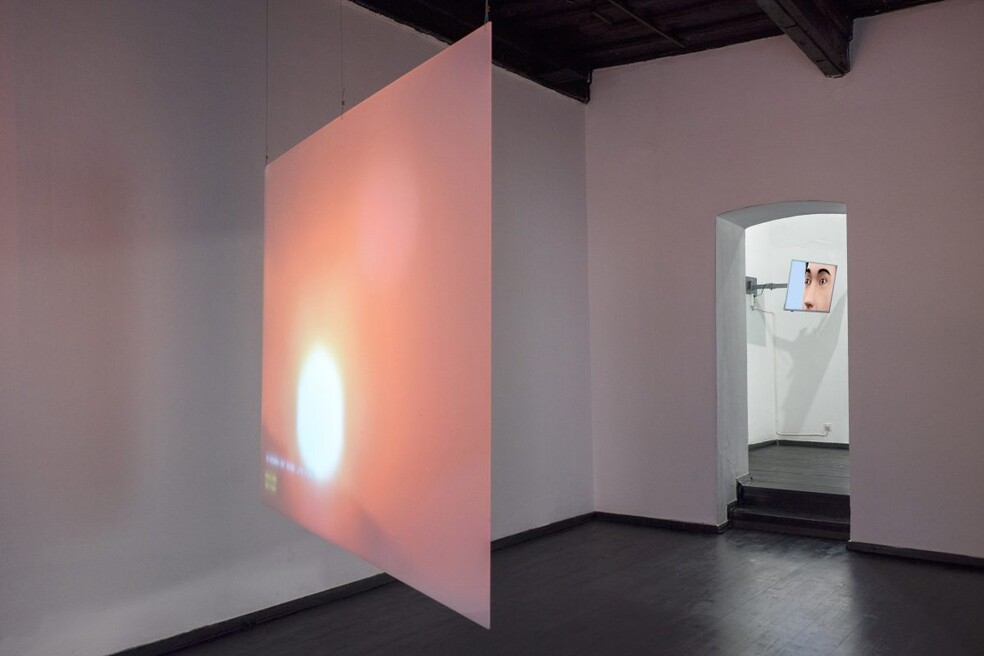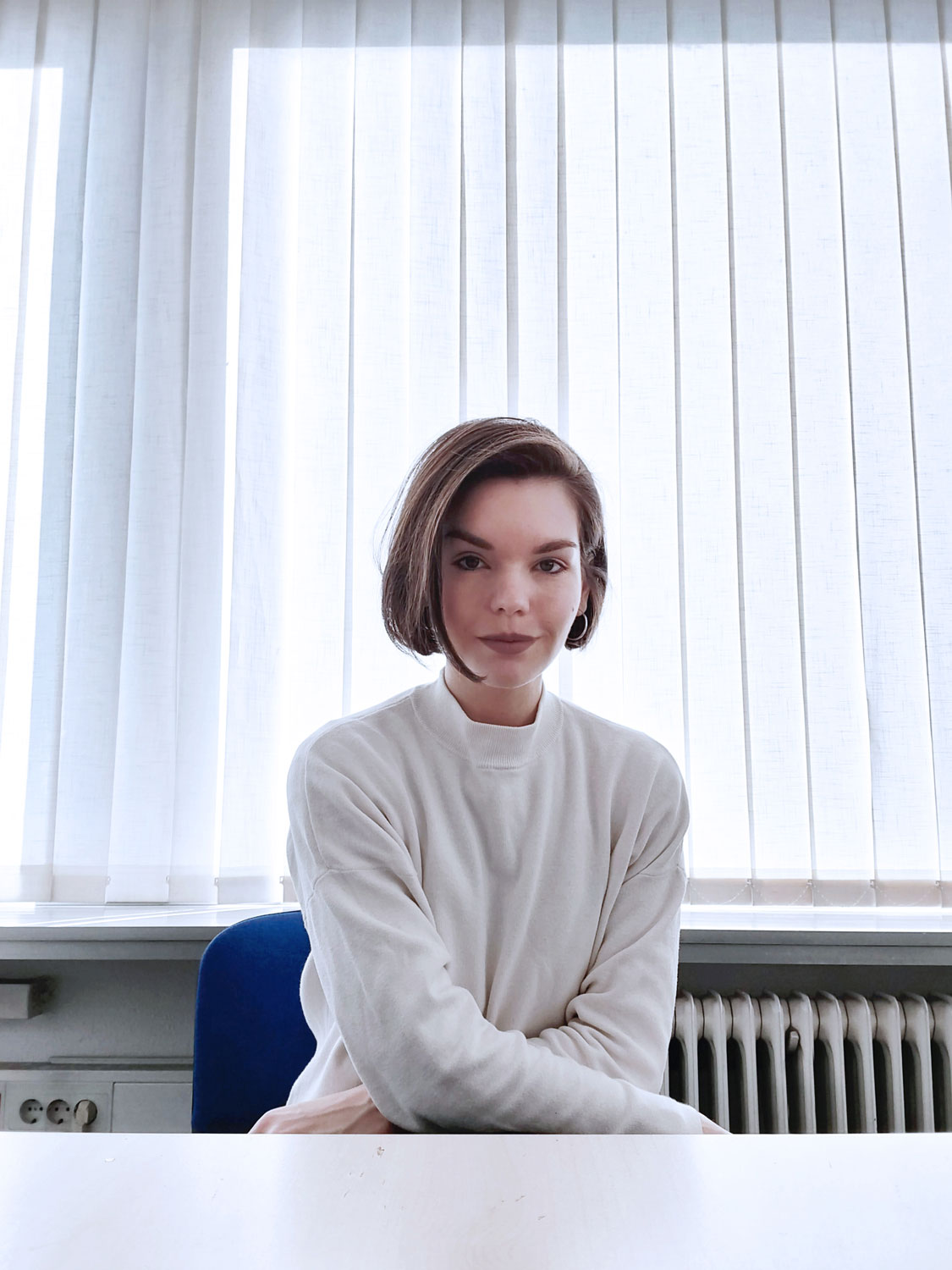Tjaša Pogačar
Bereich: Kuratorin
Key Facts
Nationalität
SlowenienBereich
KuratorinWohnort
LjubljanaEmpfehlende Institution
tranzit.org/ERSTE StiftungZeitraum
Juli 2020 - Juli 2020Tjaša Pogačar works in the field of contemporary art as a writer, editor and curator of exhibitions and discursive programs for various institutional and non-institutional contexts. She co-initiated collective projects such as BOKS and Neteorit, and is a co-founder of ŠUM, a journal for contemporary art criticism and theory, where she has been working as an editor and a member of the research collective.
SELECTED COLLABORATIONS
2020 - / Projekt Atol Institute, Ljubljana
2019-2020 / Cultural Center Maribor (MKC) & International Festival of Computer Art-IFCA, Maribor
2018 / Škuc Gallery, Ljubljana
2013 – / ŠUM, platform for contemporary art and theory
2012 – / Moderna galerija Ljubljana
SELECTED CURATORIAL PROJECTS
Živa Božičnik Rebec: Topical Applications 2, solo exhibition, Museum of Contemporary Art Metelkova, Ljubljana, December 2019 - February 2020.
Automated Ecologies, 25th International Festival of Computer Arts - IFCA, Maribor, October 2019. (Featured artists: Agustina Andreoletti, drone emoji, Max Hampshire, Anja Jelovšek, Paul Kolling, Voranc Kumar, Blaž Miklavčič, Špela Petrič, Paul Seidler, Frida Ortgies-Tonn, Jenna Sutela, Tadej Vindiš, Staš Vrenko, Tanja Vujinović, Johannes Wilke.)
From Elsewhere to Xenofeminism and Back, curated program for the festival City of Women and 25th IFCA, October 2019. (Featured: Dorota Gawęda and Eglė Kulbokaitė, Marina Gržinić, Bogna Konior, Špela Petrič)
Jon Derganc: All That is Solid Melts Into Air, solo exhibition, Škuc Gallery, Ljubljana, August 2018.
Nika Špan: U, solo exhibition, Škuc Gallery, Ljubljana, 2018 (Co-curated with Vladimir Vidmar)
The Institution: A Case Study, group exhibition, Škuc Gallery, Ljubljana, 2018 (featured artists: Viktor Bernik, Alenka Gregorič, Nika Špan. Co-curated with Vladimir Vidmar)
Next of Skin, group exhibition, Gallery Simulaker, Novo mesto, 2018. (Featured artists: Živa božičnik Rebec, Jaka Neon, David Kladnik, Andrej Škufca)
Špela Petrič & Miha Turšič: Liminalni agents, Škuc Gallery and the International Festival City of Women, Ljubljana, 2017.
tech x space, Škuc Gallery, Ljubljana, 2017. (featured artists: Aleksandra Domanović, Harun Farocki, Vadim Fiškin, Pakui Hardware, Christopher Kulendran & Annika Kuhlmann, Marko Peljhan, Fatima Al Qadiri & Dalton Caldwell)
Exhibitions of visual and intermedia art practices informed by radical transformations new digital technologies bring to our social and ecological reality tend to focus on the exhibited art projects, the research behind them and topics they address. What is too often left unaddressed, however, is what challenges (if any) these art-technology encounters bring for exhibition-making. How do recent art trends which are sensitive to technological advancements and ecological collapse, inspired by post-humanist and new materialist theories, critiques of anthropocentrism, affirmations of the nonhuman entanglements, etc. translate to curatorial and institutional practice? What could a curatorial practice learn from these art practices and what institutional models could be envisioned? I will dedicate the time of the residency to develop the focus of this research, that will feed into several projects I am planning over the next two years. This research is especially informative for my work at Šum journal where I am editing a special issue addressing questions of automation in economy and art, and vital for the curatorial project I am developing for the 26th International Festival of Computer Art in Maribor.
Although the epidemic shortened my residence and divided it into two parts (March and July), the time I spent in Vienna could not have been more productive. The get-togethers facilitated by the Q21 team, and all the breakfasts and dinners organized by fellow residents proved to be a great tool for learning about others' interests, work, and the specifics of their local art scenes and communities. Rich and thought-provoking conversations I had with the Q21 residents, artists, and other professionals I've met and visited in their studios, galleries, or independent project spaces were not only enjoyable, but also helpful and informative for my own work.
During the residency I worked on two projects: I concluded the preparations for the main exhibition and program of the 26th International Festival of Computer Arts (IFCA, Maribor) entitled Infrastructure Complex: Altered Earth, which, in the end, had to migrate online due to the second epidemic wave and can now be experienced at www.mfru.org/display2020. The program focuses on the feedback loop between contemporary technologies and ecologies, particularly the infrastructural layer of the “technosphere”. It presents projects that have been developing the tools to navigate the new spatial conditions and temporalities that the technosphere causes, projects that open the planetary perspective and reflect on the capabilities of digital technologies and their complicity with the processes of transforming the Earth, and use fiction to speculate on potential infrastructural futures (and the futures of governance). In addition, I was also developing an off-site exhibition platform (Plaza Protocol) for the Šum journal and Projekt Atol Institute in Ljubljana, which will be launched in late December 2020.
In the remaining time I visited exhibitions (… of bread, wine, cars, security and peace in Kunsthalle was especially memorable) and attended openings and guided tours. The visit to ERSTE library was also very informative and I will definitely return there next time I am in Vienna.
Overall the residence provided a stimulating working and thinking environment and great support by ERSTE, tranzit, and Q21 team, all of which enabled me to not only get better acquainted with Vienna's contemporary art scene, especially the younger generation of artists and curators, but also find new connections, alliances, and possibilities for future collaborations.
